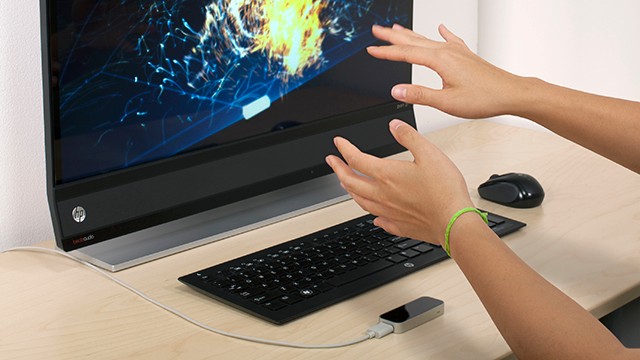The Future of Gaming Controllers
1/25/2016, 7:38p Tweet to: @Slickster_Mag – Video games have come a long way. To get from Pong to Call of Duty, the game industry has made huge leaps and bounds, not only in graphics and processing power but also in how we connect to the game. Game controllers have also come a long way from when this industry started. You wouldn’t want to play Call of Duty with a classic Atari controller unless you like poorly aimed hip-shots. The latest controllers let you move, change weapons, throw grenades, and perform many unique actions that the earlier controllers just couldn’t handle.
With a keyboard and mouse the limits are stretched further and can better support games with a more advanced interfaces like Arma 3 and Elite Dangerous. Such games have expansive key mapping menus; however, this can work against them by over complicating gameplay. Sometimes game controls can be so complex it slows players down from doing simple tasks – finding a good balance is always a challenge for players and game developers. We are ultimately limited by what we can do in game to the controls we use and our skill with them.
One way to get past this limitation is to add motion controls for increased functionality. The Wii popularized motion controls and has games that aren’t possible with a traditional controller like Wii Bowling, Tennis, and Baseball. Not only were those games successful, but they also had broken new ground, expanding gaming in a way that hadn’t been done before in older generations. Nintendo’s innovative motion controls made gaming simple and easy enough that nearly anyone could understand and enjoy it.
Touchscreens have expanded on this idea of simplifying user control and have been very successful. Smart phones and tablets have bred a whole new industry of gaming in the form of apps because of how easy touchscreens are to use. Gaming on a tablet or a smartphone has grown from being a novelty into something many people enjoy daily. The incredible success of the iPad can be attributed its ease of use – in the professional world as well as the classroom.
 Now we have a new level of control with the Kinect and LEAP Motion Controllers. Unlike the Wii or a touchscreen, LEAP and Kinect are hands free and read your body’s position. Using such controls, you can play games not possible anywhere else like Block 54, a counterpart to the board game Jenga. New games are even being released to use motion controls with an Oculus VR headset like Tran;section and Hover Junkers.
Now we have a new level of control with the Kinect and LEAP Motion Controllers. Unlike the Wii or a touchscreen, LEAP and Kinect are hands free and read your body’s position. Using such controls, you can play games not possible anywhere else like Block 54, a counterpart to the board game Jenga. New games are even being released to use motion controls with an Oculus VR headset like Tran;section and Hover Junkers.
One future of control beyond motion sensing is neural interface controls. Currently the technology is being developed for medical and military purposes with companies like Neurosky commercializing it. In the future we may see simulations like Ender Wiggin’s game in film Ender’s Game, where Ender has a tablet that reads his thoughts to control his avatar with them. Going even further the technology in the anime Sword Art Online and the film The Matrix have fully-immersive interfaces that not only read your mind but provide sensory feedback from inside the simulation. At this level of simulation, gaming will be more like a superpower fueled adrenaline rush or a real zombie apocalypse. The future of gaming is exciting and I look forward to our dreams becoming reality.
